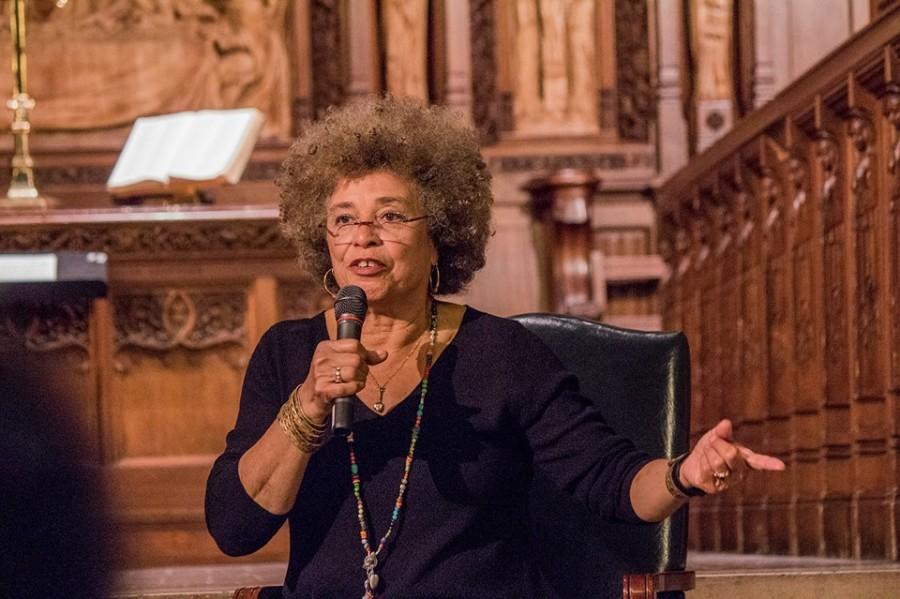Activist Angela Y. Davis speaks against state violence
November 20, 2015
When Angela Y. Davis addressed the Case Western Reserve Community at the Church of the Covenant on Nov. 13, she spoke starkly about the struggles facing black people in the United States.
“Over the last year or so, we have been very much opened on a persistent assault on black lives, from racial profiling and police violence to the racist, institutionalized violence …” Davis said.
She immediately cited the deaths of Tamir Rice and Tanisha Anderson at the hands of police last November as examples of the “persistent assaults” faced by the black community. Rice, a 12-year-old boy, was killed when officers mistook his toy gun for a real weapon. Anderson, whose family reported that she was disturbing the peace and then agreed to let the police take her to the hospital for a mental evaluation, was killed when an officer knocked her to the ground while trying to handcuff her.
“Of course these are not new, it’s just that the media has been paying more attention to these assaults over the last year in the aftermath of the Ferguson protest,” Davis said.
According to Davis, our society experiences amnesia when examining racial conflict in our own country. Instead of eliminating the institutionalized racism and violence that slavery produced, the U.S. chooses a band-aid approach. Davis said that only the immediate problems, such as police violence, are addressed, while their historical depth is ignored.
Another chronic problem that requires a more historically grounded solution is cycles of violence, which ultimately contribute to an economy of violence.
“But why do we always assume that the … violence that comes from our communities is totally separate from the violence that comes down from … the apparatuses of the state?” Davis asked. “Where does this idea come from that encourages us to see violence as a solution?”
Expanding upon her question, Davis described how people don’t know how to solve conflict anymore. So they call the police. Then, they see officers use violent behavior to solve the problem, and people learn to continue the cycle of violence.
For Davis, the epitome of our inability to solve conflict without violence is the prison system, or as she calls it, “the prison-industrial complex.” She points out that people often leave prison more violent than when they entered it, and that it unfairly targets black men.
According to The New York Times’s Upshot, 1.5 million black men are “missing” from everyday life because they are either dead or in jail. For Davis, this demonstrates that they are victims of the economy of violence she is fighting against. Their families are collateral victims, especially as they are still just as likely to be the targets of state violence thanks to racial profiling and other forms of institutionalized racism.
Calls for reform aren’t enough, though, said Davis. She wants demilitarization of the police, followed by the disarming of the police and eventually the disarming of everyone else, as well as the abolition of the prison system.
“We call for the abolition of the constitution of the police as we know it, and new ways of imagining safety and security …” said Davis. “This is only the beginning of a struggle … to reinvent and recreate our society.”
